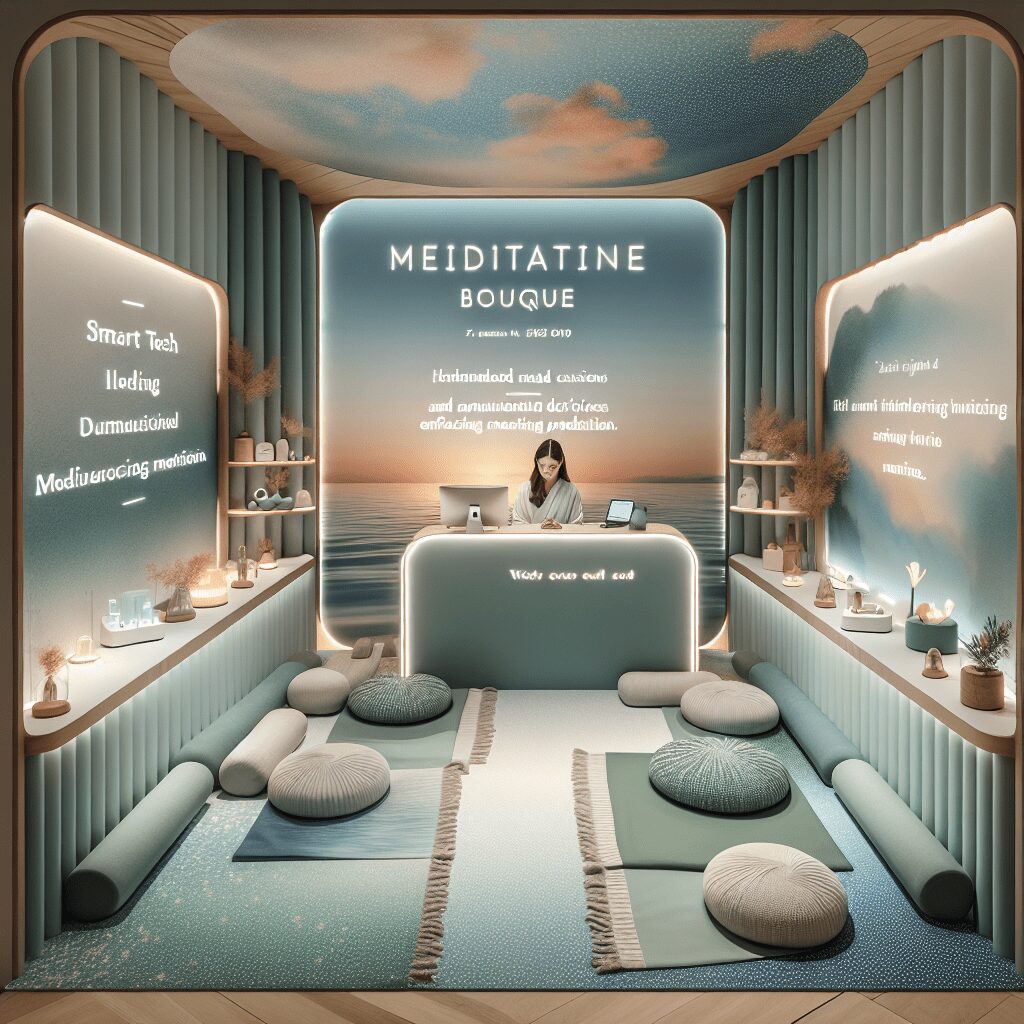
Prioritize your mental well-being daily. Enhance your life by nurturing your mental health with the Smart Meditation app. Break free from stress, alleviate anxiety, and enhance your sleep quality starting today.
Does Meditation Helps Anxiety?
The Mindful Path to Calming the Storms Within
In the buzzing digital era where our lives sprint at the speed of light, anxiety seems to be the unwelcome shadow trailing closely behind. With everyone looking for a piece of serenity, meditation emerges as a beacon of hope. But does it really help with anxiety, or is it just another wellness trend floating on the waves of social media? Let’s dive in, dissecting the facts from the fluff, and uncover how meditation might just be the unsung hero in the battle against anxiety.
A Deep Dive into Meditation and Anxiety
To understand the magic behind meditation, it’s crucial to grasp what it entails. No, it’s not about sitting cross-legged, eyes closed, and floating off into space. Meditation is the art of bringing one’s attention to the present moment, non-judgmentally. It’s about acknowledging thoughts and feelings without letting them take the driver’s seat. Now, let’s unpack how this ancient practice tangles with modern-day anxiety.
-
The Brain on Meditation: Research is in, and it’s ringing the bells of victory for meditation enthusiasts. Studies have shown that consistent meditation practices can literally rewire the brain. Yes, you read that right. Techniques like Mindfulness-Based Stress Reduction (MBSR) have been shown to decrease activity in the amygdala, the brain’s fight or flight center, which is on overdrive during anxiety attacks. Less amygdala activity equals less anxiety. It’s not magic; it’s neuroscience!
-
Curtailing the Cortisol Cascade: Cortisol, often dubbed the stress hormone, plays a leading role in the anxiety drama within our bodies. Regular meditation has been shown to reduce cortisol levels, taking the edge off anxiety and its plethora of unwelcome symptoms, ranging from sleep disturbances to a constant sense of dread.
-
A Breather from the Chaos: Apart from the biochemical shifts, meditation offers a psychological sanctuary. Engaging in regular practice provides a break from the incessant chatter of the mind and the ever-demanding digital world. It’s a moment of pause, a breather, allowing individuals to regroup, recharge, and view their worries from a new perspective.
Incorporating Meditation Into Your Daily Grind
Convinced yet? Ready to dive into the tranquil waters of meditation? Hold your horses! Knowing the “why” is half the battle. Here’s how you can integrate meditation into your fast-paced life:
-
Start Small: Rome wasn’t built in a day, and your meditation practice won’t be either. Begin with as little as 5 minutes a day and gradually increase your time.
-
Create a Habit: Consistency is key. Try meditating at the same time each day to develop a routine. Morning meditators swear by the refreshing start it gives their day, but find what floats your boat!
-
Use Tools: In the age of technology, let’s make the digital world work in our favor. Meditation apps like Headspace or Calm provide guided sessions that are perfect for beginners and seasoned meditators alike.
-
Be Patient: Like mastering any skill, meditation requires patience and practice. Don’t get discouraged if your mind wanders or if you don’t see immediate results. The benefits are cumulative.
In a nutshell, meditation isn’t just a trend that’s all hat and no cattle. It’s a time-tested, science-backed technique that has shown promising results in combating anxiety. By redirecting our focus to the present, calming the storm within our minds, and fostering a healthier relationship with our thoughts, meditation can indeed be a powerful ally in our quest for mental wellness. So, next time anxiety decides to knock on your door, remember, a mindful moment might just be the key to keeping the unwelcome visitor at bay.





